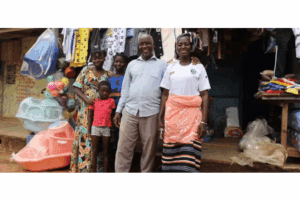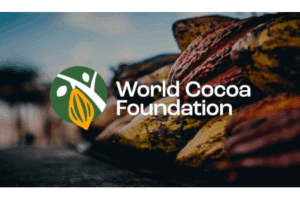Fairtrade has launched a new online tool, the Fairtrade Risk Map, which reflects how crucial farmers and workers are to establishing sustainable supply chain, as well as being essential to evolving due diligence requirements.
The risk map currently covers commodities coffee, cocoa, bananas, wine grapes and honey, and the most common countries of origin of these products. The organisation has said more products will be added in the coming months.
Currently, human rights violations and environmental harm are widespread in global supply chains. According to figures released by the organisation, one in five workers worldwide live in poverty, agricultural production is responsible for 70% of freshwater and child labour is prevalent.
Catalogued risks are relevant to these products and associated growing regions for any supply chains, not just for Fairtrade. This means anyone, including farmers and worker organisations to brands and NGOs can hone in on risks to communities and in supply chains.
The map is a product of Fairtrade’s ongoing risk and impact assessment work, adding value by incorporating rightholders’ input collected through dialogue and participatory processes.
In order to develop the map, Fairtrade spent several months working with farmer cooperatives, workers and management, Fairtrade staff from six continents and external experts.
It also includes detailed information on specific risk issues identified in the covered commodities such as child labour, gtender rights and living income, as well as environmental risks related to climate change, water and biodiversity.
“The risk map can facilitate a transparent dialogue between supply chain actors and help companies in building effective responses to address the greatest risks, avoiding further harm to farming communities and the planet,” said Marike de Peña, President of the Fairtrade Producer Network for Latin American and the Caribbean CLAC.
The map is based on the first step of human rights and environmental due diligence process, to identify risks in a supply chain. Based on experience, Fairtrade has said it can support companies in each step of implementing their due diligence responsibilities.
The organisation is encouraging companies not to ignore risks but to use the new map as an opportunity to start dialogue with farmers and workers, and take concrete steps to make global supply chains more sustainable.
“Fairtrade has been a pioneer in advancing human rights in business for more than 30 years,” said Tytti Nahi, Business and Human Rights Director at Fairtrade. “Due diligence must not be just about internal processes and requirements to business partners, it needs to be about dialogue, collaboration and changing one’s own practices, to improve people’s lives and protect the environment.”
Stay up-to-date on the latest industry news and developments in our magazine.
Never miss a story… Follow us on:
![]() International Confectionery
International Confectionery
![]() @InConfectionery
@InConfectionery
![]() @InConfectionery
@InConfectionery
Media contact
Caitlin Gittins
Editor, International Confectionery
Tel: +44 (0) 1622 823 920
Email: [email protected]








